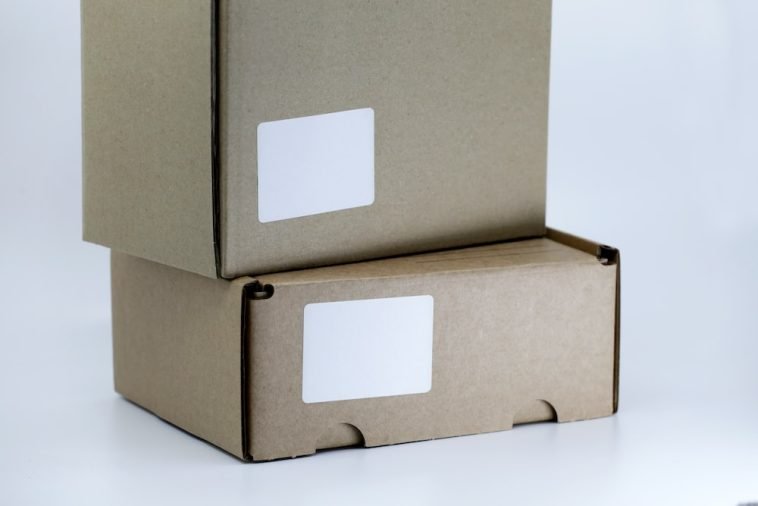Introduction.
Starting a dropshipping business can feel a bit overwhelming, especially when it comes to finding the right supplier.
If you’re new to dropshipping, you might be wondering how to find a supplier that’s reliable, affordable, and trustworthy.
Without the right supplier, even the best marketing efforts and ideas won’t matter much. So, let’s talk about what you need to know to choose the best suppliers for your business.
In this article, I’ll walk you through the whole process of finding a supplier for your dropshipping store, from where to look to what factors to consider.
It might sound tricky at first, but trust me, it’s manageable once you know the right steps to take.
Why Finding the Right Supplier Matters
Before jumping into the steps of finding a supplier, let’s pause and think about why this matters. Imagine you’re running a store and selling products to your customers, but then, your supplier isn’t able to ship the products on time.
Or maybe, the quality of the products isn’t what you thought it would be, and your customers end up leaving negative reviews. That’s a nightmare, right?
The supplier you choose can make or break your dropshipping business. If you partner with a good one, your customers will get the products they want, on time, and in good condition. This builds trust, keeps them coming back, and even leads to word-of-mouth referrals.
On the other hand, a bad supplier could hurt your business reputation, cause delays, and make your customer service a lot harder to manage. And honestly, nobody wants that.
Where Do I Find a Supplier for Dropshipping?
Now that we know why choosing the right supplier is important, let’s dive into where you can actually find one. There are several places you can look, and each one has its pros and cons. Here are the top methods:
1. Online Marketplaces.
AliExpress is one of the most popular platforms for dropshipping, and for good reason. It has thousands of suppliers and offers a wide variety of products. You can filter by product ratings and order volume, which helps you find reputable sellers quickly.
Many dropshipping businesses use AliExpress because it’s easy to use, especially if you’re just getting started. However, shipping times can be slow, so keep that in mind when offering products to customers.
Another popular marketplace is eBay, where some suppliers offer dropshipping services directly through their stores.
The downside here is that not all suppliers on eBay are reliable, so you’ll need to carefully vet sellers and read reviews before committing.
Amazon is also an option for finding dropshipping suppliers, although the marketplace is not specifically designed for dropshipping.
You can contact wholesalers or find individual suppliers who ship directly to customers. However, you’ll need to ensure the suppliers you’re working with offer competitive pricing and good customer service.
2. Supplier Directories
Supplier directories are online platforms that compile lists of verified suppliers in various industries. These platforms take the guesswork out of finding reliable suppliers because the suppliers are already vetted. Some of the best-known supplier directories include:
- SaleHoo: This directory is known for listing trusted suppliers in a variety of categories. They have a membership fee, but it comes with access to thousands of suppliers and detailed supplier information.
- Worldwide Brands: This is another well-respected directory with a huge list of suppliers. It’s a bit pricier, but many dropshipping entrepreneurs swear by it.
- Doba: Doba simplifies the process by allowing you to find suppliers and list their products in your store quickly. The downside is the subscription fee, but the convenience may be worth it for some.
3. Dropshipping Automation Platforms.
Automation platforms like Shopify and Oberlo can help you find suppliers and integrate them into your online store seamlessly.
These platforms allow you to browse products, connect with suppliers, and automate your orders. Oberlo, for instance, connects directly with AliExpress, making it super easy to find suppliers.
While these platforms handle a lot of the technical stuff for you, they usually don’t give you as much control over supplier choice, so you might want to do additional research to ensure quality.
4. Wholesale Suppliers.
If you want to go a step further and take your dropshipping business to the next level, you might want to look into wholesale suppliers.
These suppliers usually require a minimum order amount, but they can offer you better prices and more control over your inventory. Many wholesalers are open to dropshipping arrangements, so you might find a great partner this way.
You can find wholesalers through industry trade shows or by contacting manufacturers directly. Websites like ThomasNet or Maker’s Row list U.S.-based manufacturers and suppliers that could help you get started with dropshipping.
What Do I Look for in a Supplier?
Finding a supplier is only part of the battle—picking the right one is where the real work lies. Here are the things you should consider when choosing a supplier for your dropshipping business:
1. Reliability and Reputation
Look for suppliers who are known for their reliability and have a good reputation. Check their reviews, ratings, and customer feedback. A supplier that is constantly out of stock, or delivers late, will hurt your store’s reputation.
2. Product Quality
Your customers expect to get what they paid for. So, it’s important that you check the quality of the products before listing them in your store. Order samples from potential suppliers to see if their products meet your standards.
3. Shipping Time
One of the biggest downsides to dropshipping is that shipping times can be long, especially if you’re sourcing products from overseas.
But that doesn’t mean you can’t try to minimize delays. Choose suppliers who offer reasonable shipping times and reliable tracking information.
4. Pricing and Margins
Since dropshipping involves low upfront costs, your profit margins are key to your success. Compare prices between different suppliers and see which ones offer the best margins while still delivering quality products.
You don’t want to price your products too high or too low—find the sweet spot that allows you to compete with others while making a reasonable profit.
5. Customer Service
Good customer service is essential, not just for your customers, but for you as well. If there’s an issue with an order, you need a supplier who responds quickly and helps resolve the problem.
Be sure to test out their communication by sending them inquiries and seeing how fast they reply.
6. Minimum Order Requirements
Some suppliers have minimum order requirements, meaning you need to buy a certain number of items before they’ll fulfill your order. In dropshipping, you don’t always want to be holding a lot of inventory, so try to find suppliers who don’t have these restrictions or have low minimums.
How Do I Evaluate a Supplier’s Performance?
Once you’ve chosen a supplier and started working together, it’s crucial to keep track of how things are going. Evaluate their performance by monitoring things like:
- Order fulfillment time
- Shipping speed
- Customer satisfaction
- Return and refund processes
If any of these areas start to show weaknesses, don’t hesitate to find a new supplier. Your business needs to be nimble and adaptable to succeed in the competitive dropshipping space.
FAQs
Q: What if I can’t find a supplier that meets my needs?
A: If you’re struggling to find a supplier, try expanding your search. Check out multiple platforms, ask for recommendations in dropshipping forums, or look for suppliers in your niche who may not be as widely known.
Q: How can I make sure my supplier is trustworthy?
A: The best way to confirm a supplier’s trustworthiness is by reading reviews, ordering product samples, and contacting them with questions. If they respond quickly and professionally, that’s a good sign!
Q: Is it necessary to order samples from suppliers?
A: Yes! It’s important to check the product quality before selling it to your customers. Ordering samples also helps you evaluate the supplier’s shipping times and customer service.
Q: Can I change suppliers once I’ve started my business?
A: Absolutely. It’s totally normal to switch suppliers if you find one that offers better quality or more favorable terms. Just be sure to update your product listings and notify your customers about any changes.
Conclusion
Finding the right supplier is a crucial step for any dropshipping business. The supplier you choose impacts everything from the quality of your products to the experience your customers have when they buy from your store.
By using platforms like AliExpress, supplier directories, or wholesale suppliers, and keeping factors like reliability, product quality, and shipping times in mind, you can set your business up for success.
As you continue to build your dropshipping store, don’t forget that finding the right supplier is a process.
It’s worth investing the time to research and test different options to see who fits your needs best. After all, your supplier is your partner in success!
So, what’s the next step in growing your dropshipping business? Are you ready to start reaching out to suppliers today?





GIPHY App Key not set. Please check settings